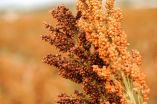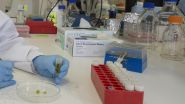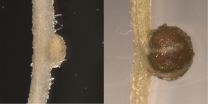(Press-News.org) AMES, Iowa - Developing any habit--good or bad--starts with a routine, and exercise is no exception. The trick is making exercise a habit that is hard to break. According to a new Iowa State University study, that may be easier to accomplish by focusing on cues that make going for a run or to the gym automatic.
Some interventions designed to help people start and continue exercising may focus on the execution habit, or an exact routine to follow at the gym, said Alison Phillips, an assistant professor of psychology at Iowa State. However, Phillips' research, published in the journal Health Psychology, found that it's the instigation habit - or cues that prompt people to automatically go to the gym - that increases exercise frequency.
"From a health perspective, we want people to engage in physical activity frequently, and so instigation habit is the type of habit to promote that to happen," Phillips said. "Regardless of the type of exercise you're going to do on a particular day, if you have an instigation habit, you'll start exercising without having to think a lot about it or consider the pros and cons."
For example, Phillips says many people exercise after work. The end of the work day presents their cue to drive to the gym and workout instead of driving home. For others, the cue may be the alarm clock going off in the morning signaling that it is time to go for a run or a bike ride. Some research suggests that it may take a month or longer of repeated behavior before a cue reliably and automatically triggers a behavior; sticking with the same time of day might help initially, Phillips said.
The most common cues used with interventions are external, she added. But what works best might vary from person to person. Internal cues, such as a feeling that you need to move after sitting for several hours at your desk, form the strongest habits, Phillips speculates, but are harder to train in people and must develop over time.
The study is the first to explore the importance of different habit components in predicting exercise frequency. Phillips and Benjamin Gardner, King's College London, asked 118 healthy adults to rate their exercise instigation and execution habit strength. They then tracked how often they exercised over the course of the month.
Approximately 25 percent of participants were overweight or obese. Around 5 percent reported not exercising, while nearly 50 percent said they had regularly exercised longer than 12 months.
Finding a cue that works for you
While the study found execution habit had no effect on exercise frequency, after controlling for instigation habit, Phillips stressed it still may be an effective option for some people starting a new routine. For anyone who is new to exercise or uncomfortable going to the gym, following the same routine can help build self-confidence at the activity and being active in general. However, for others the repetitiveness of sticking to a specific routine may be detrimental.
"This study shows that you don't have to be afraid of trying new things. You can have an instigation habit and try new types of exercise without worrying about losing the habit," Phillips said. "It might be important for people just starting out to do the same thing until they realize they can do this, but in the long-term there does not seem to be a benefit of doing the same things over and over again."
Phillips says more research is needed to determine what cues work best.
"I would caution people to not draw too many personal conclusions from this research because it is so preliminary," she said. "This doesn't mean that one way is necessarily bad or this is the way you have to do it. It's really just the first clue that maybe what we have been doing isn't right for everyone. And, I think it's hopeful that the research shows you can keep up an 'exercise habit' without having to stick to the same boring activities over time."
INFORMATION:
MANHATTAN, Kansas -- A new study led by a Kansas State University geneticist has shown that genomic signatures of adaptation in crop plants can help predict how crop varieties respond to stress from their environments.
It is the first study to document that these genomic signatures of adaptation can help identify plants that will do well under certain stresses, such drought or toxic soils, said Geoff Morris, assistant professor of agronomy at Kansas State University and a researcher affiliated with the university's Feed the Future Innovation Lab for Collaborative Research ...
Since their first discovery a generation ago, it has been recognized that hydrothermal vents at the bottom of the deep dark oceans represented unique habitats for exotic forms of life previously unknown to science. But what has gone quite overlooked, until now, is the role that these "rare, exotic" systems might play in regulating the global-scale chemistry of the oceans and, hence, the health and productivity of our planet as a whole.
A new study by researchers from University of Washington (UW), Old Dominion University (ODU), Woods Hole Oceanographic Institution (WHOI), ...
Strategies to support healthier diets among seniors need to take into account differences between elderly men and women, according to UBC research.
The two groups had varying responses to a tactic thought to boost seniors' fruit and vegetable intake, according to a study published in Appetite.
The study explored which types of social support encouraged seniors to boost their daily intake of fruits and vegetables.
Social support, typically provided by friends and family, comes in different forms. It ranges from emotional support, which bolsters one's sense of self, ...
One of the most important things to understand in battery technology is the precise physical and chemical processes that occur at the electrode/electrolyte interface. However, microscopic understanding of these processes is quite limited due to a lack of suitable probing techniques. Now, researchers at the US Department of Energy's (DOE) Lawrence Berkeley National Laboratory (Berkeley Lab) and the University of California, Berkeley, have developed a new technique that enables sensitive and specific detection of molecules at the electrode/electrolyte interface.
This new ...
Ann Arbor, MI, July 8, 2015 - Nearly 800,000 people in the U.S. suffer a stroke each year. Stroke is responsible for one out of every 19 deaths in the U.S. and it is a leading cause of disability. A new study published in the American Journal of Preventive Medicine found that secondhand smoke (SHS) increases the risk of stroke by about 30 percent for nonsmokers.
Using data from the Reasons for Geographic and Racial Differences in Stroke (REGARDS) study, a national, population-based, longitudinal study investigating cardiovascular disease events and mortality endpoints ...
New York, 9 July - Investing up to 3.5% of a nation's GDP in science, technology and innovation - including basic science and education - is a key benchmark for advancing sustainable development effectively, leading experts say.
In papers released July 9 in New York, international scientists advising UN Secretary-General Ban Ki-moon say closing the gap between developed and developing countries depends on first closing international science, technology and innovation (STI) investment gaps.
According to the UN SG's 26-member Scientific Advisory Board: "While a target ...
Scientific journals should insist on more robust experimental processes, say biologists after reviewing nearly 900,000 experiments.
The team found that non-blind experiments - that is, where scientists knew which samples they were recording - averaged a 27 per cent stronger result than blind trials.
However their review suggests that less than one in four experiments used blind data recording.
"We found that non-blind papers tended to exaggerate differences between the experimental group and the control group," said lead researcher Dr Luke Holman, from the Research ...
Long-time smokers and past smokers now have a more accurate way of detecting whether or not they have lung cancer thanks to a comprehensive lung cancer screening program that uses CT scan technology at Intermountain Medical Center in Salt Lake City.
The program is based on the findings of the National Lung Screening Trial, a study that compared CT scans and standard chest X-rays in detecting lung cancer. CT scans use X-rays to obtain a multiple-image scan of the entire chest, while a standard chest X-ray produces a single image of the whole chest.
Results from the study ...
An international team of researchers has discovered how legumes are able to tell helpful and harmful invading bacteria apart. The research has implications for improving the understanding of how other plants, animals and humans interact with bacteria in their environment and defend themselves against hostile infections. These findings can have profound implications for both agricultural research and medical science.
Their study, which changes the understanding of carbohydrates as signal molecules, is newly published in the leading international journal Nature.
Legumes ...
ORLANDO, FL - An athlete's use of silicone ankle sleeves (SAS) and lace-up ankle braces (LAB) during sports participation can improve neuromuscular control, according to research presented today at the American Orthopaedic Society for Sports Medicine's (AOSSM) Annual Meeting in Orlando, FL.
"Athletes often use prophylactic sleeves or braces, and this study used markerless motion analysis to determine whether these support aids are beneficial," said lead author Seth L. Sherman, MD, from the University of Missouri - Columbia Department of Orthopaedic Surgery.
The study ...





